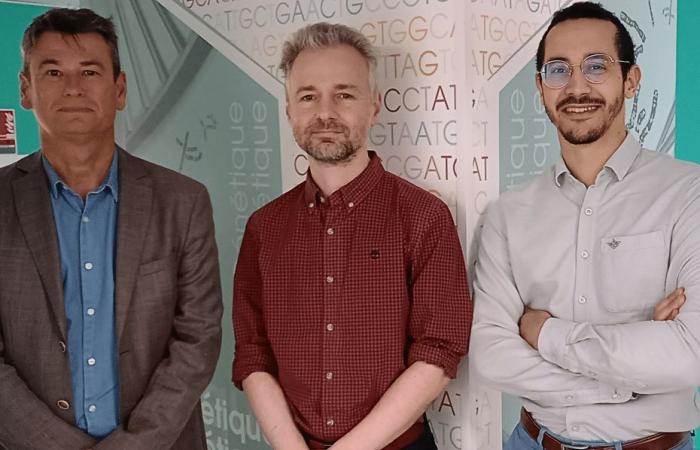
At the head of an international consortium, Nantes researchers are making the link between the mutation of a gene and neurological disorders which can lead to problems with memorization, learning and behavioral disorders.
“The dysfunction can appear before birth, in the embryonic stage. The bulk of the damage occurs during the embryonic stage, then during the first years of life,” explains Doctor Sébastien Küry, researcher at the INSERM unit at Nantes University Hospital.
He is part of the Nantes team which internationally coordinated the research which led to the discovery.
This research focuses on the cause and effect link between the poor functioning of the proteasome, a type of “maxiprotein” and neurodevelopmental disorders in children.
“The proteasome is a protein recycling factory for all cells in the body, explains Dr. Küry. The proteasome breaks down poorly formed proteins to recycle them and put them back into cell function. Without this factory, we have an accumulation of proteins which will be toxic to the cells. This will imply a difficulty in the functioning of brain cells with problems acquiring knowledge, language and memorization.
This dysfunction of the “recycling factory” appears during a genetic mutation when the body is in full development, in the embryonic period or in early childhood.
“In children, cells operate at full capacity, indicates Wallid Deb, doctor at the University Hospital who worked on this research as part of his doctoral thesis. This is a very sensitive period. This is purely due to chance. When the system splits, it is completely unpredictable. Following mutations in genes that make it possible to manufacture proteasome subunits, we can see abnormalities in the functioning of the proteasome.”
The toxic accumulation of malformed or useless proteins will cause damage in the brain and induce neurodevelopmental disorders.
“It’s a neurological disease, confirms Sébastien Küry. It is the central nervous system that is affected. There are problems with memorization, learning, behavior and autistic disorders. It is a pediatric disease, but we suspect that with behavioral disorders, we can also have, in adults, psychiatric problems.
The functioning of the proteasome has been documented since the 1980s to 2000. In 2010, we discovered that mutations associated with the proteasome gene could create inflammatory pathologies. The discovery made at the Thorax Institute in Nantes established that these mutations could also be involved in neurological disorders.
“We also have the impression that the variation of PSMD11 (the gene that affects the proteasome) would promote the appearance of obesity”adds Wallid Deb.
However, on the American continent, 30% of children are obese. Genetic mutation could explain some cases. But only a few cases, because, according to the team of researchers, the discovery concerns rare causes of intellectual disabilities.
If we go back up the tree of causes, having children at a later age could explain the transmission of faulty genes.
“The later parents have children, the more likely they are to pass on cells that have mutations, explains Dr. Deb. Our goal is to identify therapeutic targets (in the cell) for which we could act to restore this degradation function.”
The work of the research team fits well with the notion of applied research, because it involves providing answers to patients who do not understand what impacts their health and their lives. But also to advance research towards possible treatments.
Created twenty years ago, the Thorax Institute is located near the Nantes University Hospital and has 70 researchers working on cardiac, vascular, metabolic and respiratory diseases.
There are multiple sources of funding depending on the research carried out. The one on neurodevelopmental disorders in children was funded by the National Research Agency, the European Joint Program on Rare Diseases, the European Union, the Pays de la Loire Region, AXA patronage, NExT and Nantes University Hospital.
Find us on our social networks and on france.tv





